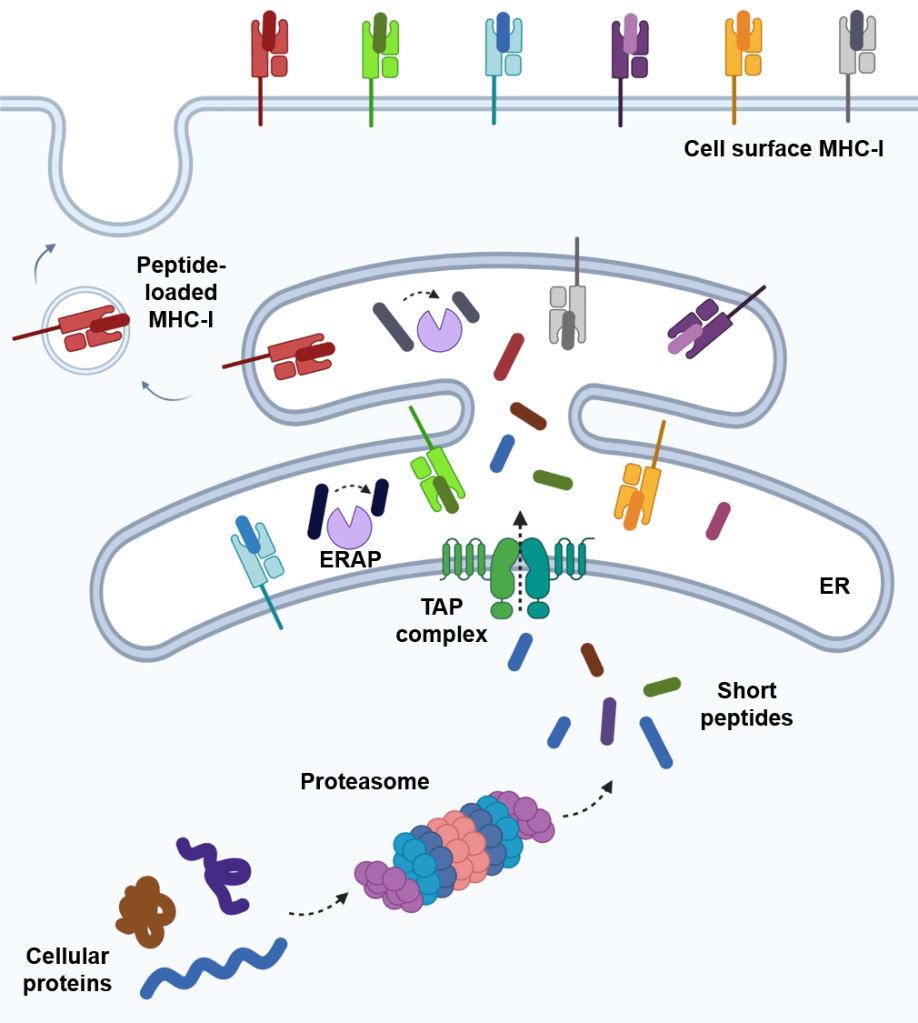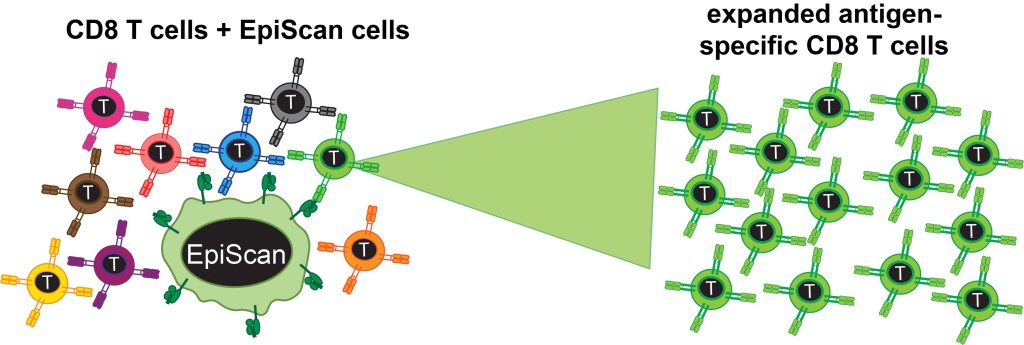We use synthetic biology and high-throughput functional genetic screens to expand our ability to interrogate and manipulate the immune system. Our new tools for understanding antigen presentation and T-cell recognition are being applied to cancer and other diseases with the goal of developing new immunotherapies and better implementing existing ones.

Mapping the “Dark” Immunopeptidome of Cancer with EpiScan
How do T-cells recognize foreign invaders and keep us free from disease? By using their T-cell receptors to read out the peptides displayed on MHC. These MHC-bound peptides, collectively known as the immunopeptidome, will trigger a T-cell response if recognized as non-self, and they can vary greatly between individuals and tumor types.
That’s why we’re using EpiScan to discover the “dark” immunopeptidome, or features of the immunopeptidome that are difficult to discover via other technologies. EpiScan allows for higher-throughput and more specific discovery of disease-relevant MHC binding peptides. We plan to characterize the immunopeptidome for recurrent cancer mutations for all common MHC alleles, but also including those that are historically under-represented in scientific literature. Thus, we’ll be making a roadmap for T-cell responses to cancer across a broad range of individuals.

Precision Antigen Presentation
EpiScan cells have a single, genetically encoded, peptide:MHC complex on their surface. This enables precise control of what antigens that T-cells are exposed to. This system can be used as a platform for novel immunotherapy development and to answer several questions related to fundamental T-cell biology such as…
Which peptides make good T-cell epitopes and why? How does the peptide antigen influence T-cell phenotype? Can we use peptides from recurrent cancer mutations to discover therapeutic TCRs?

Understanding the Immune Repertoire of Prostate Cancer
Immune checkpoint blockade has revolutionized the treatment of previously intractable cancers, such as melanoma and lung cancer, but immunotherapies rarely achieve durable responses for metastatic prostate cancer. We are using a combination of EpiScan and T-Scan to understand the interplay of the immune system and the development of prostate cancer. EpiScan will tells us which prostate cancer-specific genes and mutations are, or are not, visible to the immune system whereas T-Scan reveals which of the cancer-specific features the immune system ultimately recognizes in patients versus healthy individuals. Jointly leveraging these two lines of inquiry provides our laboratory with unique opportunities for improving therapeutic outcomes for prostate cancer patients. Other urological cancers, particularly those with variable responses to immunotherapy, will be investigated as well.
Other Projects
The Bruno Lab is also interested in applying synthetic biology and functional genetic tools to understand autoimmunity and infectious disease and attain fundamental insights into antigen presentation and T-cell biology.